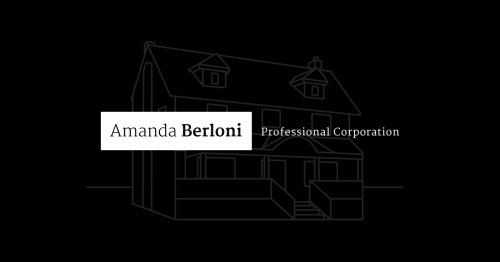Best Communications & Media Law Lawyers in Greater Sudbury
Share your needs with us, get contacted by law firms.
Free. Takes 2 min.
List of the best lawyers in Greater Sudbury, Canada
About Communications & Media Law in Greater Sudbury, Canada
Communications & Media Law is a specialized legal field that covers the rules, regulations, and rights related to the transmission and publication of information in various forms. In Greater Sudbury, Ontario, these laws govern broadcasting, telecommunications, print and digital media, advertising, privacy, defamation, and freedom of expression issues. With the city’s active local media landscape and the increasing importance of digital communications, understanding these laws is essential for individuals and organizations involved in producing, sharing, or broadcasting content.
Why You May Need a Lawyer
People often require legal advice in Communications & Media Law for a variety of reasons. Here are some common situations:
- Facing a defamation claim (libel or slander) as a publisher, journalist, or individual posting online.
- Being the subject of false or damaging information and seeking remedies or corrections.
- Questions regarding copyright, trademark, or intellectual property rights in published materials or media works.
- Receiving a notice for copyright infringement related to digital content sharing.
- Broadcasting content on local radio, TV, or online platforms and needing to comply with Canadian content and advertising standards.
- Privacy concerns, such as unauthorized use of personal images or data in media or advertising.
- Regulatory compliance for media organizations or telecommunications companies operating in Sudbury.
- Navigating access to information requests and understanding obligations under Ontario’s freedom of information legislation.
- Handling disputes over internet or telecommunication services and contracts.
- Responding to government or regulatory body inquiries or complaints.
Local Laws Overview
Communications & Media Law in Greater Sudbury is regulated by a combination of federal, provincial, and municipal laws. Key aspects include:
- Canadian Charter of Rights and Freedoms: Guarantees freedom of expression, but with limits to protect against hate speech, defamation, and threats.
- Broadcasting Act & CRTC regulations: The Canadian Radio-television and Telecommunications Commission (CRTC) oversees broadcasting and telecommunications, setting standards for local content, accessibility, and consumer protections.
- Defamation Law: Ontario’s laws provide a legal framework for lawsuits involving libel and slander, allowing for remedies when reputations are harmed by false or damaging statements.
- Privacy Legislation: Federal laws like the Personal Information Protection and Electronic Documents Act (PIPEDA) and provincial laws regulate the collection, use, and disclosure of personal information by media and organizations.
- Copyright Act: Governs the protection and use of creative works in print, music, broadcasting, and online.
- Anti-Spam & Digital Policies: Canada’s Anti-Spam Legislation (CASL) regulates the sending of commercial electronic messages and the installation of computer programs.
- Access to Information and Protection of Privacy Act (Ontario): Regulates public access to records held by public institutions in Sudbury and the handling of personal information.
For local media, additional guidelines may be set by associations or city bylaws, especially regarding advertising and public event coverage.
Frequently Asked Questions
What is considered defamation under Ontario law?
Defamation includes libel (written) and slander (spoken) statements that are false and harm someone’s reputation. In Ontario, you can be sued for defamation if you spread untrue and damaging information about someone publicly, whether in print, online, or broadcast.
Can I record conversations or publish recordings in Sudbury?
Under Canadian law, at least one party must consent to the recording of a conversation. However, publishing a recording may violate privacy or other laws, especially if the conversation was expected to be private or if personal information is disclosed.
How do copyright laws affect local content creators in Sudbury?
Copyright laws protect original works like articles, images, videos, and music. You need permission from the copyright holder to use or share copyrighted material unless your use qualifies as “fair dealing” (such as for news reporting, review, or education) under Canadian law.
What steps should local media outlets take to comply with CRTC regulations?
Media outlets must register or license with the CRTC, meet content and accessibility standards (such as closed captioning), follow advertising rules, and protect consumer privacy and rights as outlined by CRTC guidelines.
What should I do if I believe I’ve been defamed online?
Document the offending material, keep records of emotional or financial harm, and consult a lawyer promptly. A lawyer can advise you on legal remedies, which may include demanding a retraction, apology, or pursuing a lawsuit.
How can I lawfully use images or music in my media project?
Always secure permission or a license from the copyright owner, unless the material is in the public domain or your use falls under fair dealing. Using copyrighted materials without permission can result in legal claims.
Where can I report problematic or illegal content posted by local media?
Complaints about broadcasting can be directed to the CRTC, while privacy issues can be reported to the Office of the Privacy Commissioner of Canada or the Information and Privacy Commissioner of Ontario. Other issues, such as hate speech or harassment, may be reported to the police.
What is Canada’s Anti-Spam Law and how does it apply to my online business in Sudbury?
CASL regulates commercial electronic messages, requiring businesses to obtain consent before sending promotional emails or texts, provide clear identification, and allow recipients to unsubscribe easily. Failure to comply can result in substantial fines.
Does freedom of expression allow the publication of any content?
Freedom of expression is protected, but not absolute. Limits exist to prohibit hate speech, obscenity, threats, and false statements that cause harm (such as defamation). Media must balance free expression with these legal restrictions.
Are there special requirements for Indigenous-focused media or communications in Sudbury?
Indigenous media may have additional considerations regarding language, cultural content, and local agreements. While subject to the same federal and provincial regulations, certain funding and content opportunities exist to promote Indigenous voices in Canadian media.
Additional Resources
If you need more information or ongoing support, consider reaching out to the following resources and organizations:
- Canadian Radio-television and Telecommunications Commission (CRTC)
- Office of the Privacy Commissioner of Canada
- Information and Privacy Commissioner of Ontario
- Canadian Media Lawyers Association
- Canadian Bar Association (Ontario branch) - Media and Communications Law Section
- Sudbury & District Law Association
- Legal Aid Ontario
- Ontario Ministry of the Attorney General
- Local community legal clinics and public legal education organizations
Next Steps
If you believe you need legal advice or representation in Communications & Media Law matters in Greater Sudbury, follow these steps:
- Identify the specific issue you are facing-defamation, copyright, regulatory compliance, privacy, etc.
- Gather all relevant documents, communications, and evidence related to your situation.
- Contact a local lawyer experienced in Communications & Media Law. Many offer an initial consultation.
- Consider reaching out to legal aid or community legal resources if cost is an issue.
- Ask about your rights, remedies, and responsibilities. Clarify potential costs and next steps in the legal process.
- If your situation involves regulatory bodies, familiarize yourself with their complaint or inquiry procedures.
- Regularly document any developments in your case and maintain clear records of all communications.
By following these steps, you can better protect your interests and ensure compliance with the relevant laws while resolving your legal concerns in Communications & Media Law in Greater Sudbury.
Lawzana helps you find the best lawyers and law firms in Greater Sudbury through a curated and pre-screened list of qualified legal professionals. Our platform offers rankings and detailed profiles of attorneys and law firms, allowing you to compare based on practice areas, including Communications & Media Law, experience, and client feedback.
Each profile includes a description of the firm's areas of practice, client reviews, team members and partners, year of establishment, spoken languages, office locations, contact information, social media presence, and any published articles or resources. Most firms on our platform speak English and are experienced in both local and international legal matters.
Get a quote from top-rated law firms in Greater Sudbury, Canada — quickly, securely, and without unnecessary hassle.
Disclaimer:
The information provided on this page is for general informational purposes only and does not constitute legal advice. While we strive to ensure the accuracy and relevance of the content, legal information may change over time, and interpretations of the law can vary. You should always consult with a qualified legal professional for advice specific to your situation.
We disclaim all liability for actions taken or not taken based on the content of this page. If you believe any information is incorrect or outdated, please contact us, and we will review and update it where appropriate.










